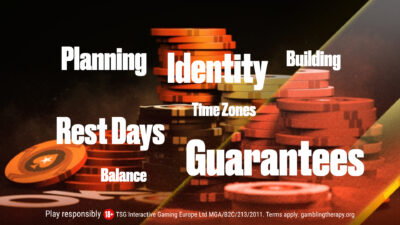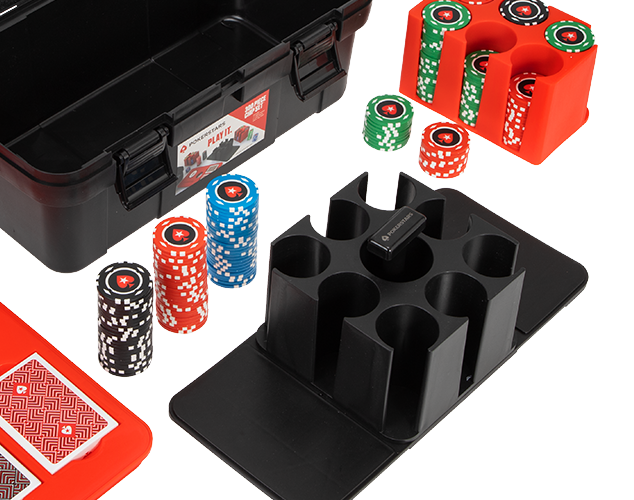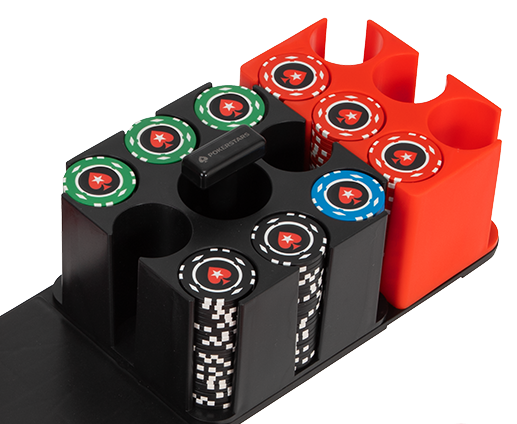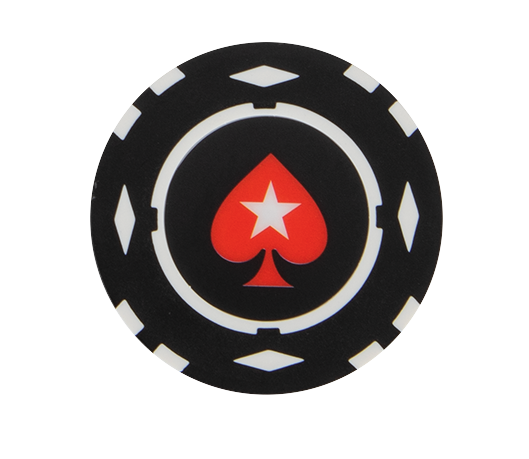by Adam STUDSTOOD Roberts
Now that the annual WSOP has begun, I am going to continue on with tournament strategy.
Although having a “game plan” is usually harder to do in tournaments than cash games, I think you should have one.
Among the items to think about is which events to play in – this applies whether it is over a specific tournament series (i.e. the WSOP, or PokerStars annual WCOOP and SCOOP), or over a whole year of events throughout the poker world. Money (for both buy-ins and other tournament related expenses) and time should be specifically put aside for your plans. If you can’t afford the high buy-ins at the WSOP, should you even make the effort to go to Las Vegas then? Or would you be better off travelling to a smaller, less expensive series?
Also think about whether you should you play in cash games during the tournaments. This will apply both before, during (online), and after a given event you plan on playing. Some people can handle playing continuous poker, switching between tournaments and cash games with no problems, but others find that playing cash games between or during tournaments hurts their overall results. You need to make an honest assessment of what’s best for you.
These questions will be hard enough to decide, but you need to stick to your guns, especially when faced with many different options once you are actually out there playing. You may show up at the WSOP vowing to only enter events if you win a satellite, but can you honestly resist and not play major events anyway?
On another level, you need to make decisions regarding how you want to play. What is your “game plan” with regards to overall hand strategy in a given event? (Are you intending to play a loose trapping game, or a tight-aggressive game, for example?)
Are you just “looking to cash,” or is your focus solely on winning the event?
I think that these last few questions should not be over-analyzed. As I mentioned in previous blogs, I try not to change my overall strategy from cash games to tournaments, although I notice that some players do. For most people, the plan is to play your regular poker game, but adapt to the circumstances you face at each table, in each phase of the event.
With regards to looking to cash versus trying to actually win an event, again, I think that should not be a pre-determined issue. Personally, I always enter an event with anticipation and hope of winning, as should you. However, there have been events where I did change my hand strategy because I was close to “the bubble,” and felt, given the circumstances (chips, players, etc.), it was more important for me to cash, even if it meant having a slightly lower chance of winning the event. On the flip side, there were also situations where I decided to “gamble” a bit more because I felt that I needed to get myself in a more favorable position to win, and was willing to risk finishing lower to hopefully reach that goal.
The same factors apply when you have the opportunity to consider making a deal with your remaining opponent(s). Factors like:
Another issue that you may want to take into consideration is how much you are willing to let your “ego” get involved. For me, the money is my main concern. That’s more important to me than any accolades (or jewelry/trophies) that go along with getting first place in a given event.
There is no “right or wrong” in these decisions. They should be based on your personal priorities at the time. That said, though, I do not feel that your ego should get in the way of making a sound decision.
Although you will be in the “heat of battle”, and very focused on your play, your opponents’ play, and all the surrounding circumstances and factors, once you get down to either being close to or in the money, you will have time during breaks to think about these “meta” decisions. I feel that it is prudent to try and “step back” and honestly evaluate all factors involved, so you can make the best decisions possible for you and your family. In fact, if your family is there, you may want to include them (and maybe close friends as well) in these important decisions.
You should also give thought as to whether you want your family or friends to be watching you! Remember, this is gambling, and you will be making split-second decisions involving a lot of money. Will your ability to make correct decisions change if there are people watching who are close to you?
Personally, I like having my close friends (and backer, if applicable) watching me. It “pumps me up” and I like hearing their opinions during the breaks. But some people find that they “freeze” when they’re being watched this way. As with most other topics we have covered here, these should be personal decisions for you.
Hopefully you’ll be facing these decisions on the biggest poker stage – the World Series of Poker!
In the meantime, you can find me in the $10/$20 and $30/$60 limit games in our Stud section, as well as in our weekend $215 buy-in tournaments for Stud games. Please check the starting times of each of those events under Tourney > Special in the PokerStars lobby.
Feel free to contact me with any questions, suggestions or thoughts at adamr@pokerstars.com.
See you at the tables!
Back to Top










